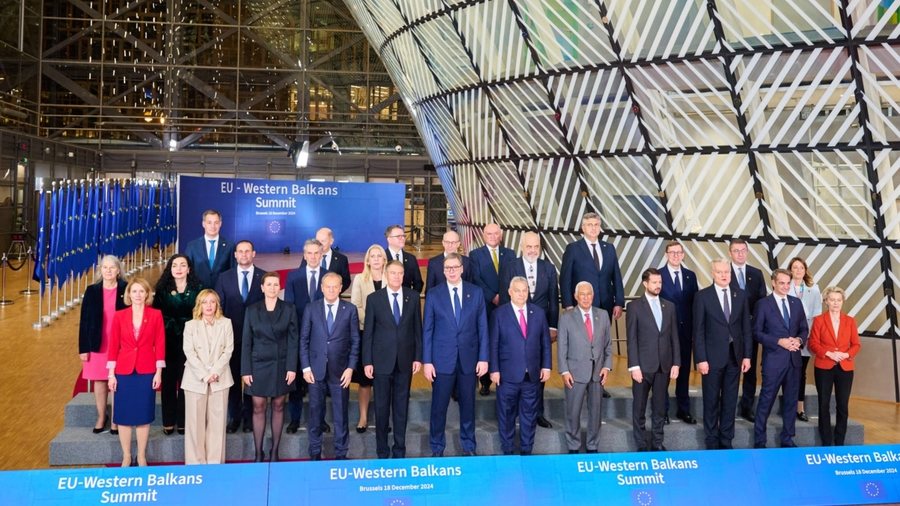
The new president of the European Council, Antonio Costa, said on Wednesday that there is no doubt that the future of the Western Balkans is in the European Union, while he emphasized that in order to speed up the integration, the region must work on solving open bilateral issues.
He made these comments in a joint conference with the President of the European Commission, Ursula von der Leyen, at the end of the meeting between the leaders of the European Union and those of the Western Balkans.
"Enlargement is the best geostrategic investment that all of us can make for peace, security and stability," he said, stressing that "there are still challenges, open issues and bilateral dilemmas that need to be addressed."
"I am personally engaged in efforts to overcome these problems," he said.
Mr. Costa said that greater integration builds true strategic partnership, emphasizing that this partnership sees "the Western Balkans aligned alongside the European Union in condemning Russian aggression in Ukraine."
Currently, only Serbia has not harmonized with the European Union's foreign policy by refusing to join the Western sanctions against Russia due to its aggression in Ukraine.
"Given the geopolitical situation, we are redoubling our efforts to support our partners who want to make progress," said Ms von der Leyen.
Kosovo remains the last in the region in the integration processes, while its progress in this direction, like that of Serbia, is closely related to the implementation of the agreement reached last year for the normalization of relations between them. Its implementation has stalled and both sides have had tense relations.
The President of Kosovo, Vjosa Osmani, said on the eve of today's meeting that she is completely disappointed with the approach of some member countries of the European Union due to the lack of steps to remove the punitive measures that the bloc imposed on Kosovo due to the lack of coordination regarding the actions to govern in the north.
"There is nothing European and nothing based on values to punish an entire people even in projects related to drinking water", she said, emphasizing that the policies for the alignment of the Western Balkans with the EU should include all states and not just a few.
"We definitely congratulate Montenegro and Albania for the important steps forward and we are excited about this progress because it is based on merit. However, if you see the positive language that has been used for Serbia, inviting it to submit its negotiating position, the message that we get in our region, especially in Kosovo, is that the more you align yourself with Russia, with Iran, with China , the more progress it marks", said President Osmani.
Kosovo has applied for membership in the European Union in December 2022, but its request has not yet been considered.
"Tonight we heard about the frustrations from the region but I believe we can overcome them together, now we have a new momentum", said the President of the European Council, Costa, without giving more details.
Mrs. von der Leyen said that she supports the lifting of the measures and the initiation of procedures for granting candidate status to Kosovo, but for this the problems that exist must be overcome since "decisions in the EU are made by consensus".
"We are ready to start the process, but we need an invitation to come up with a position... The same applies to the measures. We are absolutely ready to lift the measures, but even here we need compliance from the member countries, which we do not have now, but we are working hard to ensure it, because, anyway, it is important that Kosovo also moves", she said.
In the text of a joint statement that was approved during today's meeting, it is stated that "the lack of normalization of relations between Pristina and Belgrade is holding both sides back. The agreements reached in the Belgrade-Pristina dialogue mediated by the EU must be implemented, especially the agreement on the road to normalization and its implementation annex".
The statement also emphasizes that "the European Union recalls that a prerequisite for support for the Western Balkans is for the parties to engage in a constructive manner and achieve progress and tangible results in the normalization of relations between them". / Voice of America (A2 Televizion)











